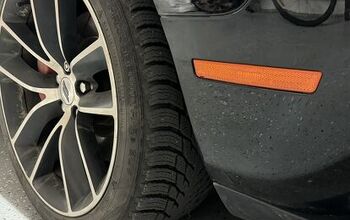Workers At LG Chem Plant On Furlough As Green Jobs Wilt
Workers at an LG Chem plant in Holland, Michigan have already been put on furlough before a single battery has come off the line. Workers have three weeks of paid “work”, and one week off unpaid at the $300 million plant.
As early as 2010, the Holland plant was touted by President Obama as the return of manufacturing jobs to America, and green ones at that. The facility was estimated have produced 15,000 batteries a year and added hundreds of jobs. So far, 200 workers are being paid to do nothing.
The Department of Energy provided a $151 million Recovery Act grant for the factory, while LG received property tax breaks worth $50 million over 15 years (contingent on reaching 300 workers over 5 years), and $2.5 million in other tax breaks. While the plant’s largest customer was supposed to be the Chevrolet Volt, all of its batteries have come from South Korea so far.
Target 8, A local NBC affiliate interviewed plant employee Nicole Merryman, who said that
“We were given assignments to go outside and clean; if we weren’t cleaning outside, we were cleaning inside. If there was nothing for us to do, we would study in the cafeteria, or we would sit and play cards, sit and read magazines,” said Merryman. “It’s really sad that all these people are sitting there and doing nothing, and it’s basically on taxpayer money.”
Worers placed on furlough are eligible to collect unemployment for that week, but that’s not the only government subsidy that is used to sustain LG Chem’s work force. Of the 200 employees at the plant, half are being paid via Recovery Act funds. 40 percent of the company’s $133 million expenditures have gone to foreign companies, mostly South Korean, according to Target 8. The station is also reporting other taxpayer-funded expenditures
A Target 8 analysis of federal records shows taxpayers spent $7 million to train workers and have paid more than $700,000 for workers’ health and dental insurance. There’s millions of dollars more at stake for LG Chem if it doesn’t keep hiring, or if its job numbers fall. The state approved a $25.2 million job-creation state tax credit over 15 years, and a battery cell state tax credit worth $100 million over 4 years. Both are tied to job creation. LG Chem has yet to file claims for that money, state officials said.
Workers haven’t produced anything since December, when production of test units of battery cells ended. Sluggish sales of the Volt are one possible culprit, though the plant hasn’t made any components for the Ford Focus EV either, as it was originally planned to do. One possibility is that the Holland plant will produce batteries for the second generation Chevrolet Volt, but even then, there are controversies over the technology being farmed out to LG Chem after it was developed with public funds. The next generation battery is due out in 2015 and is said to be 35 percent cheaper than what’s out there today.
Right now, we are left with a $300 million mystery. The subsidization of unused capacity is puzzling, to say the least, not to mention a horribly inefficient use of stimulus funds. The grants given out by the government are contingent on hiring more workers, but if nothing is being produced, how can LG Chem justify keeping the plant open, even with workers (half of whom are paid via Recovery Act funds) on furlough?
At least there’s one upshot to the whole ordeal. The report by Target 8 has led to an investigation into the LG Chem plant by the Recovery Accountability and Transparency Board, a government agency responsible for overseeing the stimulus funds.
More by Derek Kreindler
Latest Car Reviews
Read moreLatest Product Reviews
Read moreRecent Comments
- W Conrad I'm not afraid of them, but they aren't needed for everyone or everywhere. Long haul and highway driving sure, but in the city, nope.
- Jalop1991 In a manner similar to PHEV being the correct answer, I declare RPVs to be the correct answer here.We're doing it with certain aircraft; why not with cars on the ground, using hardware and tools like Telsa's "FSD" or GM's "SuperCruise" as the base?Take the local Uber driver out of the car, and put him in a professional centralized environment from where he drives me around. The system and the individual car can have awareness as well as gates, but he's responsible for the driving.Put the tech into my car, and let me buy it as needed. I need someone else to drive me home; hit the button and voila, I've hired a driver for the moment. I don't want to drive 11 hours to my vacation spot; hire the remote pilot for that. When I get there, I have my car and he's still at his normal location, piloting cars for other people.The system would allow for driver rest period, like what's required for truckers, so I might end up with multiple people driving me to the coast. I don't care. And they don't have to be physically with me, therefore they can be way cheaper.Charge taxi-type per-mile rates. For long drives, offer per-trip rates. Offer subscriptions, including miles/hours. Whatever.(And for grins, dress the remote pilots all as Johnnie.)Start this out with big rigs. Take the trucker away from the long haul driving, and let him be there for emergencies and the short haul parts of the trip.And in a manner similar to PHEVs being discredited, I fully expect to be razzed for this brilliant idea (not unlike how Alan Kay wasn't recognized until many many years later for his Dynabook vision).
- B-BodyBuick84 Not afraid of AV's as I highly doubt they will ever be %100 viable for our roads. Stop-and-go downtown city or rush hour highway traffic? I can see that, but otherwise there's simply too many variables. Bad weather conditions, faded road lines or markings, reflective surfaces with glare, etc. There's also the issue of cultural norms. About a decade ago there was actually an online test called 'The Morality Machine' one could do online where you were in control of an AV and choose what action to take when a crash was inevitable. I think something like 2.5 million people across the world participated? For example, do you hit and most likely kill the elderly couple strolling across the crosswalk or crash the vehicle into a cement barrier and almost certainly cause the death of the vehicle occupants? What if it's a parent and child? In N. America 98% of people choose to hit the elderly couple and save themselves while in Asia, the exact opposite happened where 98% choose to hit the parent and child. Why? Cultural differences. Asia puts a lot of emphasis on respecting their elderly while N. America has a culture of 'save/ protect the children'. Are these AV's going to respect that culture? Is a VW Jetta or Buick Envision AV going to have different programming depending on whether it's sold in Canada or Taiwan? how's that going to effect legislation and legal battles when a crash inevitibly does happen? These are the true barriers to mass AV adoption, and in the 10 years since that test came out, there has been zero answers or progress on this matter. So no, I'm not afraid of AV's simply because with the exception of a few specific situations, most avenues are going to prove to be a dead-end for automakers.
- Mike Bradley Autonomous cars were developed in Silicon Valley. For new products there, the standard business plan is to put a barely-functioning product on the market right away and wait for the early-adopter customers to find the flaws. That's exactly what's happened. Detroit's plan is pretty much the opposite, but Detroit isn't developing this product. That's why dealers, for instance, haven't been trained in the cars.
- Dartman https://apnews.com/article/artificial-intelligence-fighter-jets-air-force-6a1100c96a73ca9b7f41cbd6a2753fdaAutonomous/Ai is here now. The question is implementation and acceptance.

































Comments
Join the conversation
Coal and oil are not "hugely subsidized": They get tax deductions, much like other industries. Check out the link below to see a comparison to energy sources that are not only "hugely subidized", but totally dependent on the government: wind and solar. http://media.hotair.com/wp/wp-content/uploads/2011/03/energy-subsidies.jpg Here are some jobs being sacrificed for Obama's "war on coal" in my neck of the woods: http://www.kxlh.com/news/ppl-montana-will-close-billings-power-plant-in-2015/
Here we go again. Failing to pay for externalities is not a subsidy. We could easily solve pollution externalities by taxing it. The result would be a regressive tax. You choose. By the way, corporations never actually pay taxes. If you don't understand this, please get some education. In the end, all taxes are paid by people.